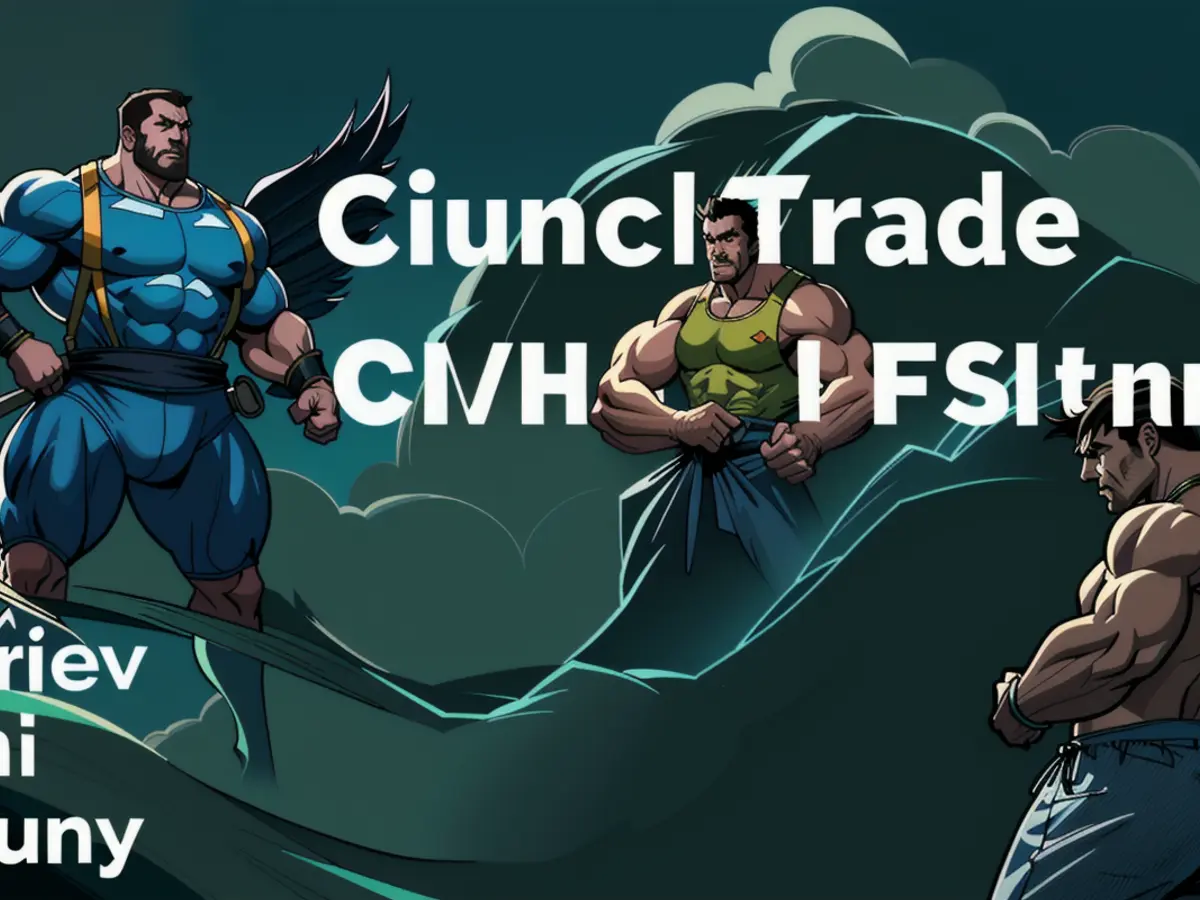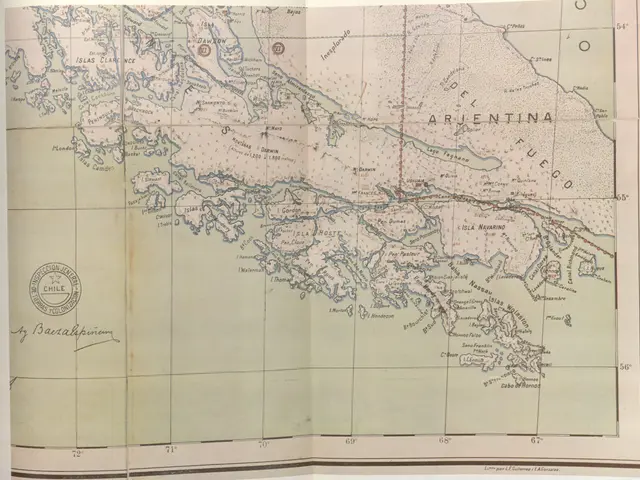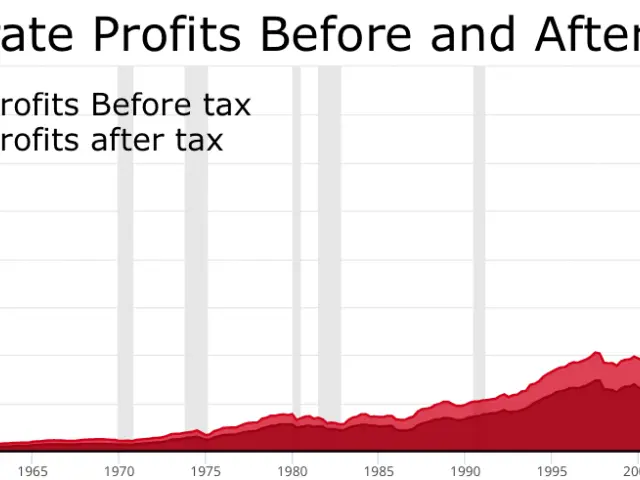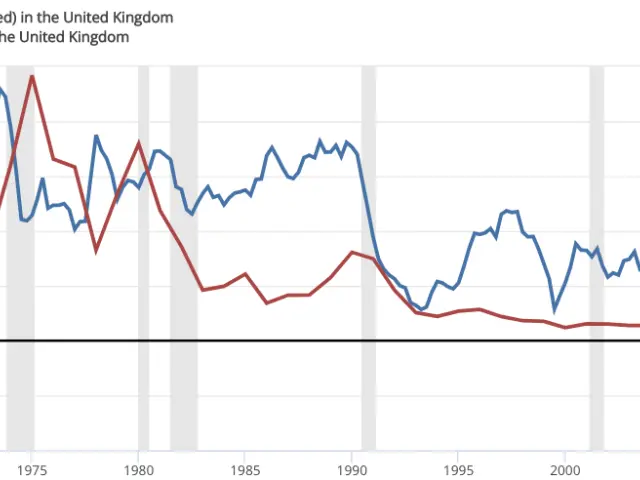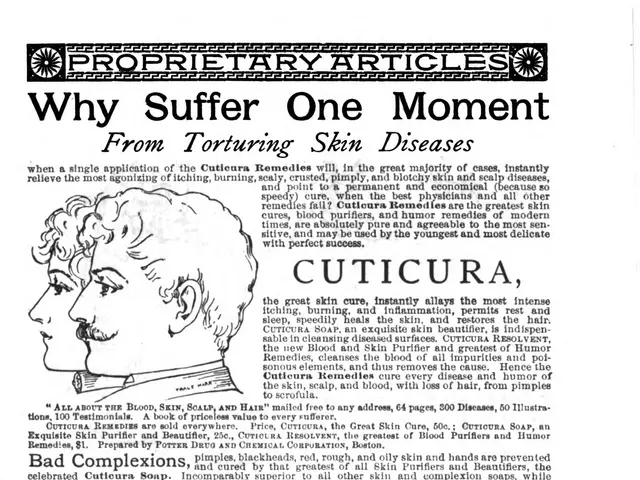International Commerce, Custom Duties, Artificial Intelligence Financing, Tobacco Pouches, among other Subjects
In this podcast discussion, Our Website analyst Asit Sharma and host Dylan Lewis delve into various economic and investment-related topics, including tariffs, trade, and AI advancements. Key highlights include:
- The Trump administration imposes tariffs on imports from Canada, Mexico, and China at 25% and 10%, respectively, aiming to tighten border security.
- Canadian Pacific Kansas City (CPKC), a cross-border railroad company, could be significantly impacted as 40% of U.S. imports come from the three targeted countries. CEO Keith Creel believes they can navigate the situation as they've invested in railyards to serve the North American supply chain.
- De minimis rule, a trade exemption allowing $800 value items to enter the U.S. duty-free, is targeted by the administration to limit discount online retailers from China, particularly Temu.
- OpenAI partners with SoftBank to launch a $3 billion enterprise contract and joint venture, SB OpenAI Japan, to provide AI offerings to Japanese businesses.
[Enrichment Data:]
The anticipated tariffs on imports from Canada, Mexico, and China will negatively affect cross-border railroad companies like CPKC.
- Revenue impact: CPKC's revenue derive mainly from cross-border intermodal container traffic, automotive shipments, and agriculture exports. A drop in volume demand due to tariff-induced costs could lead to a substantial decline in their revenue.
- Automotive sector disruption: Tariffs may disrupt integrated supply chains of major car manufacturers like General Motors, Ford, and Stellantis, leading to potential plant shutdowns and reduced production.
- Bulk commodity business: Grain exports to the U.S. may have minor implications, but U.S. agricultural exports to Mexico may decrease if Mexico retaliates with its tariffs.
- Uncertainty and forecasts: Wall Street analysts have trimmed CPKC's earnings forecasts in anticipation of tariffs. CPKC had projected mid-single-digit volume growth for 2025, but the prolonged trade dispute raises uncertainty, potentially affecting their forecasts.
- Strategic rationalization: The $31 billion merger of CP and KCS was based on the assumption of capturing growth in North American trade flows. Tariffs may undermine their long-term ambitions.
- Diversification strategies: To mitigate the tariff impact, companies should consider adopting supply chain diversification strategies, such as relocating manufacturing operations or embracing multi-country assembly.
- CEO's optimism: Despite the tariff threat, CPKC's CEO Creel remains hopeful, emphasizing the interconnectivity of the North American economy and expressing belief in their long-term growth prospects.
- In response to the tariffs, CPKC might consider investing more in its railyards to accommodate shifts in trade routes, as suggested by CEO Keith Creel.
- The ongoing trade dispute might encourage some businesses to reconsider their reliance on nicotine products like Zyn, which are currently imported from countries affected by tariffs.
- Analysts predict that the outlook for the automotive sector will be dependent on how effectively manufacturers, such as General Motors and Ford, can manage the increased costs resulting from tariffs.
- If the tariffs on imports persist, financial institutions might probably reevaluate their investment strategies and allocate resources towards industries less dependent on international trade, like the tobacco industry.
- As the tariff situation evolves, it might be probable that some companies will explore different finance options to help offset the increased costs associated with these tariffs.
